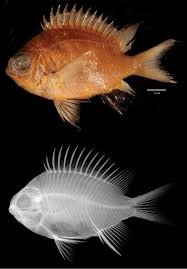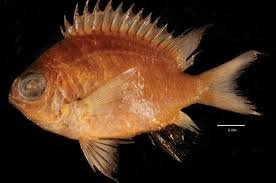New Damselfish Species Found in Maldives: A Remarkable Discovery
A new species of damselfish has been discovered in the Maldives, a significant marine discovery that has excited both environmentalists and marine biologists. The fish species, named Pomacentrus maldivensis, was found in the coral reefs surrounding the archipelago, an area known for its rich biodiversity. This marks an important contribution to the study of marine life in the Indian Ocean region, especially considering the Maldives’ unique marine ecosystems.
The new species of damselfish is characterized by its vibrant color patterns and its ability to thrive in specific environmental conditions. Researchers believe this discovery could provide valuable insights into the adaptability of species in coral reef habitats. The Maldives, which is home to over 2,000 coral reefs, offers a rich environment for marine research, making it a hotspot for discovering new species.

Why This News is Important: Protecting Marine Biodiversity
Significance of the Discovery
The discovery of Pomacentrus maldivensis in the Maldives is significant because it highlights the rich marine biodiversity of the region. Coral reefs are known for their ecological importance, providing shelter and sustenance to a wide array of marine life. Identifying new species contributes to our understanding of marine ecosystems, their evolution, and their resilience in the face of climate change.
Marine Conservation and Awareness
This discovery also raises awareness about the importance of protecting coral reefs, which face increasing threats from climate change, overfishing, and pollution. It emphasizes the need for conservation efforts to preserve these critical ecosystems, which are vital for maintaining biodiversity and supporting local economies reliant on fishing and tourism.
Implications for Marine Biology
The identification of a new species also furthers marine biology, offering researchers new opportunities to study the behaviors, interactions, and ecological roles of the fish species within the coral reef ecosystem. Understanding such species can aid in the development of conservation strategies and sustainable management practices for coral reefs worldwide.
Historical Context: Coral Reefs and Marine Discoveries
The discovery of new species within coral reefs is not a new phenomenon. Coral reefs are some of the most biologically rich environments on Earth, supporting thousands of marine species. In recent decades, numerous new species have been discovered within these ecosystems, contributing to the broader understanding of marine life.
Historically, the Maldives has been an important location for marine research due to its position in the Indian Ocean and the pristine condition of its coral reefs. Over the years, many marine species, including fish, mollusks, and invertebrates, have been documented in the Maldives, adding to the global pool of marine knowledge. However, these ecosystems are increasingly under threat, prompting global conservation initiatives to safeguard coral reefs.
Key Takeaways from ‘New Damselfish Species Found in Maldives’
| S.No | Key Takeaway |
|---|---|
| 1 | A new species of damselfish, Pomacentrus maldivensis, was discovered in the Maldives’ coral reefs. |
| 2 | This discovery emphasizes the biodiversity of the Maldives, known for its rich marine ecosystems. |
| 3 | The new species could provide important insights into species adaptability in coral reef habitats. |
| 4 | The discovery highlights the need for continued conservation efforts to protect coral reefs from climate change and pollution. |
| 5 | It contributes to global marine biology research, fostering a better understanding of coral reef ecosystems. |
Important FAQs for Students from this News
What is the newly discovered species in the Maldives?
- The newly discovered species of fish in the Maldives is Pomacentrus maldivensis, a type of damselfish found in coral reefs around the archipelago.
Why is the discovery of this species significant?
- The discovery highlights the biodiversity of coral reef ecosystems and provides insights into how species adapt to these environments. It also emphasizes the need for marine conservation to protect coral reefs from threats like climate change and pollution.
Where was the species found?
- The Pomacentrus maldivensis species was discovered in the coral reefs surrounding the Maldives, an area known for its rich marine life.
How does this discovery contribute to marine biology?
- This discovery enhances our understanding of marine ecosystems, the behaviors of species within coral reefs, and the ecological roles they play. It can also aid in developing conservation strategies for these ecosystems.
What challenges do coral reefs in the Maldives face?
- Coral reefs in the Maldives are facing threats such as climate change, rising sea temperatures, pollution, and overfishing, which endanger marine biodiversity and local economies.
Some Important Current Affairs Links

















